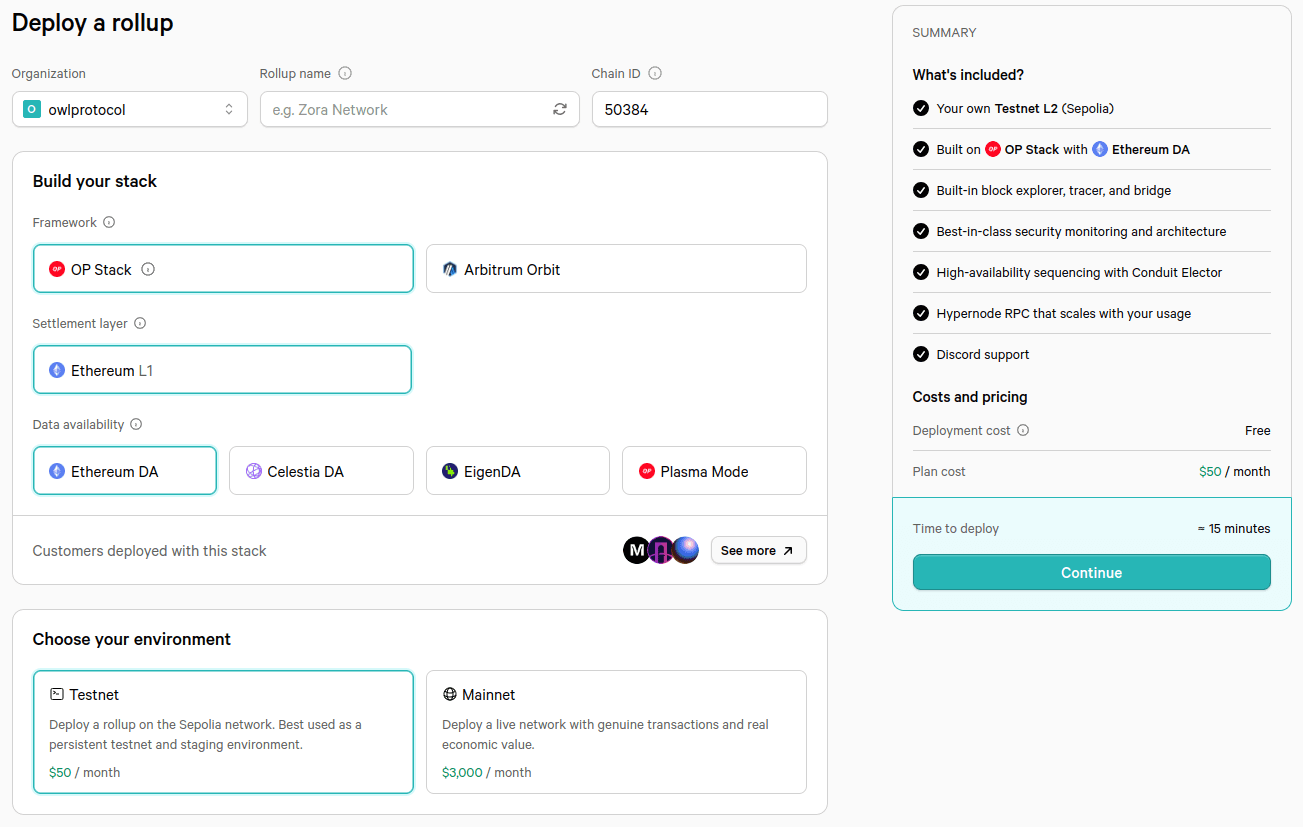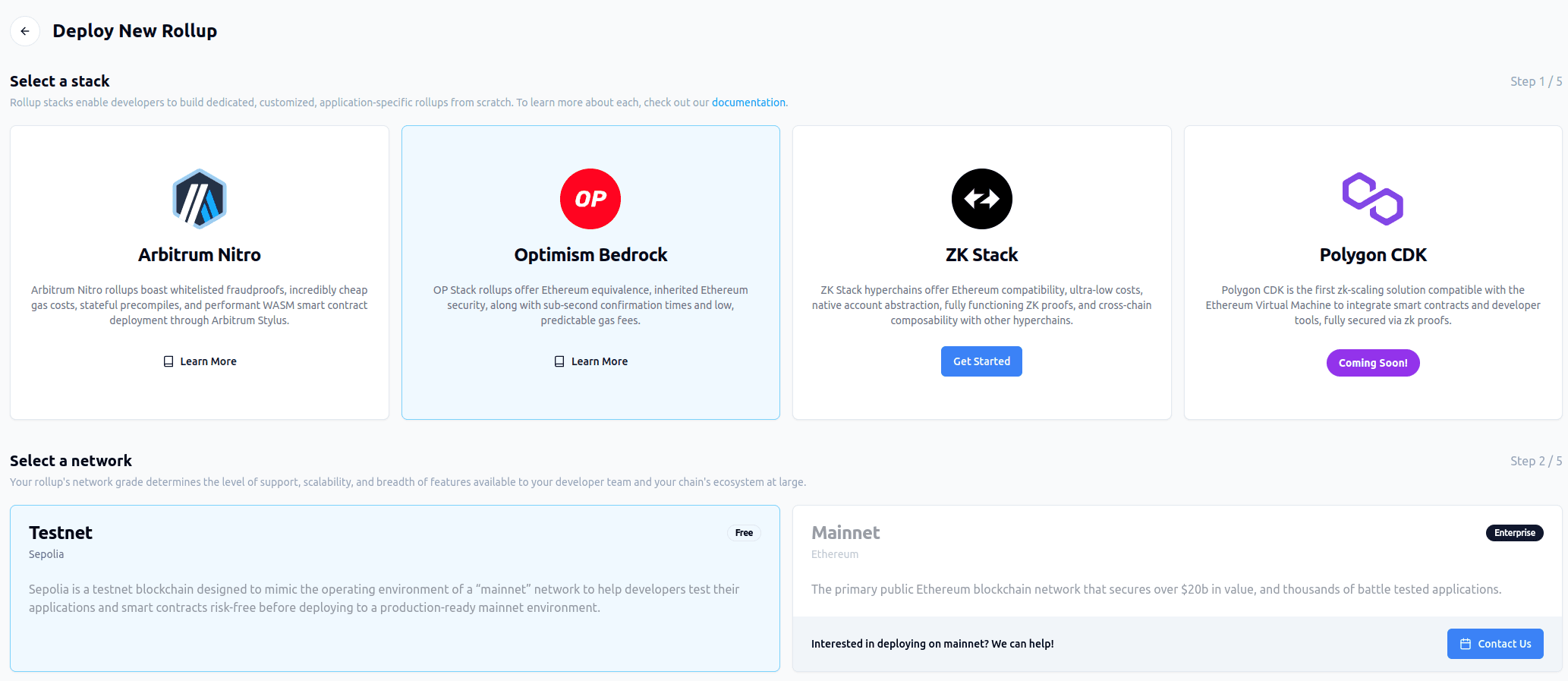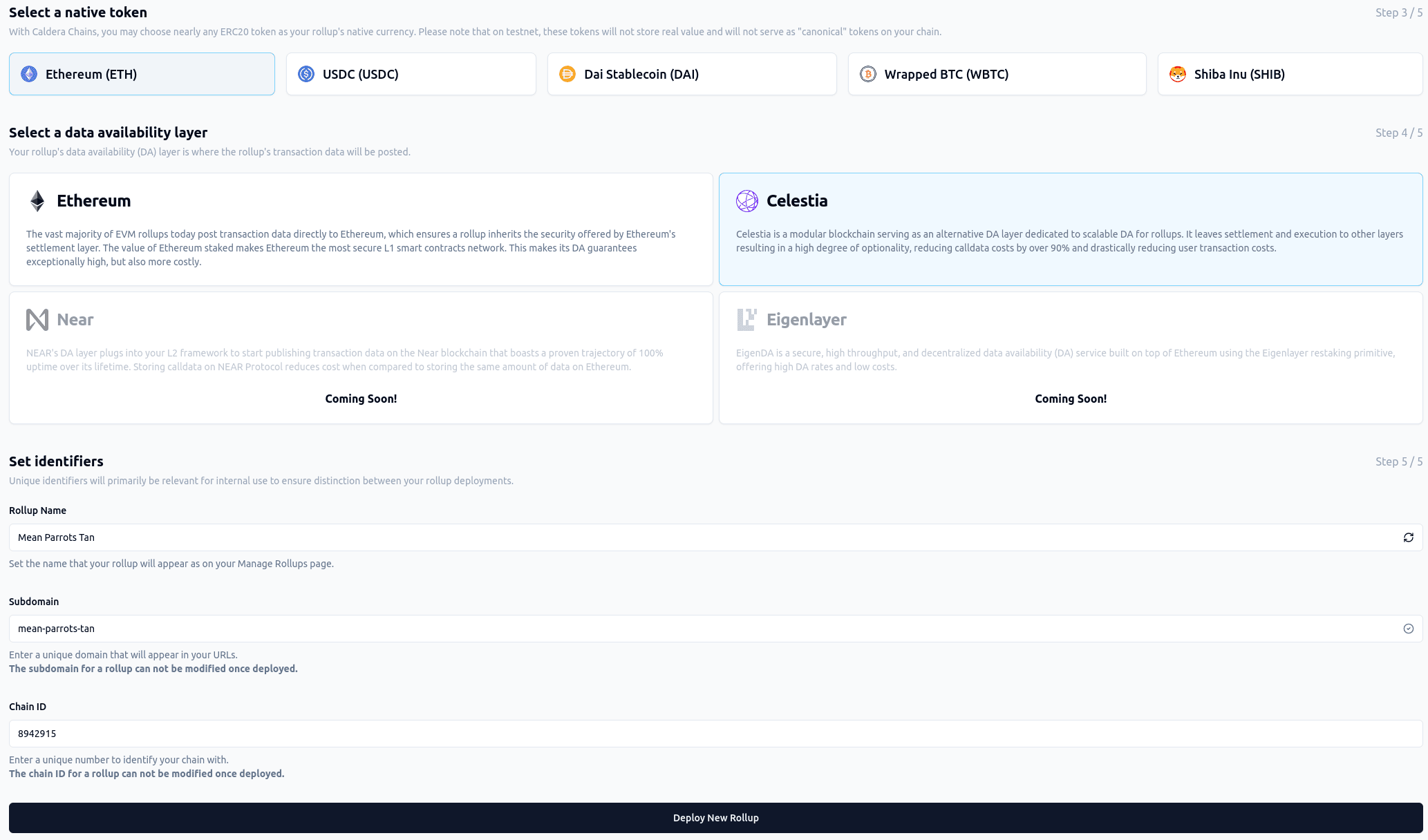Launch a Custom EVM Chain
What's a rollup? Learn more about EVM Rollups
If you wish to launch a custom Ethereum Virtual Machine (EVM)-compatible blockchain, L2/L3 rollups are probably the best solution.
If you are looking to launch a new L2/L3 rollup consider reaching out (opens in a new tab) for dedicated support.
To launch a rollup, you can either use a Node as a Service Provider (NaaS) for a simple no-code experience to quickly deploy a chain, or use a Rollup Framework for a more advanced but customizable configuration. We recommend using one of the following solutions to launch a custom EVM Chain.
Rollup Providers (easy)
Conduit
Conduit (opens in a new tab) is a Node as a Service Provider that lets you deploy rollups in minutes, not months. Conduit supports OP Stack, Arbitrum Orbit, and Polygon CDK, with many configuration options.
- Click New deployment in the top right corner of the Conduit dashboard (opens in a new tab).
- Chain ID: We recommend a number over 1,000,000 to avoid collisions with other chains ⚠️. See ChainList (opens in a new tab) for a list of official chain IDs.
- Framework: Owl Protocol currently supports both Optimism Bedrock & Arbitrum Nitro so you can pick either
- Settlement Layer: This is the parent chain of your rollup. You can pick any of the available options (Ethereum, Base, Zora, Mode).
- Data Availability: Data availability. You can pick any of the available options. Ethereum provides higher guarantees at greater cost. Alternatives (Celestia, EigenDA, Plasma, AnyTrust) are usually designed for greater scalability to reduce transaction costs significantly.
- Environment (Testnet / Mainnet): If launching a mainnet, consider reaching out (opens in a new tab) for additional developer infrastructure support (account abstraction, explorers, bridges, indexing).
See conduit.xyz (opens in a new tab) for more info. Feel free to contact us (opens in a new tab) if you need support launching a custom chain.

Caldera
Caldera self-serve dashboard only supports testnets at this time but feel free to contact us (opens in a new tab) or caldera team (opens in a new tab) if you need support launching a custom mainnet chain.
Caldera (opens in a new tab) is a Node as a Service Provider that lets you deploy rollups in one click. Caldera supports OP Stack, Arbitrum Orbit, and Polygon CDK, with many configuration options.
- Click the "New Rollup" button in the top right corner of the Caldera dashboard (opens in a new tab)
- Framework: Owl Protocol currently supports both Optimism Bedrock & Arbitrum Nitro so you can pick either

- Native Token: You can technically select any option but we recommend using Ethereum for better bridging compatibility
- Data Availability Layer: Ethereum provides higher guarantees at greater cost. Celestia provides greater scalability by reducing transaction costs significantly.
- Chain ID: We recommend a number over 1,000,000 to avoid collisions with other chains ⚠️. See ChainList (opens in a new tab) for a list of official chain IDs.

See caldera.xyz (opens in a new tab) for more info. Feel free to contact us (opens in a new tab) if you need support launching a custom chain.
Rollup Frameworks (advanced)
OP Stack
OP Stack is the standardized, shared, and open-source development stack that powers Optimism, maintained by the Optimism Collective. OP Stack can be used to launch a custom EVM-compatible L2/L3 rollup.
See docs.optimism.io/stack/getting-started (opens in a new tab) for more info.
Arbitrum Orbit
Arbitrum Orbit is the permissionless path for launching customizable dedicated chains using Arbitrum technology. Arbitrum Orbit lets you create your own Arbitrum Rollup and AnyTrust chains.
See arbitrum.io/orbit (opens in a new tab) for more info.
Rollkit
Rollkit is an opensource sovereign rollup framework.
See rollkit.dev (opens in a new tab) for more info.